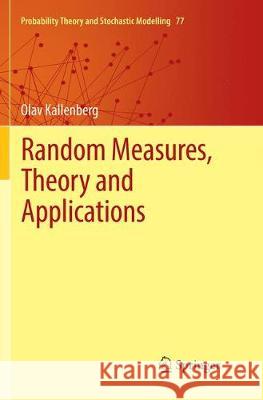Random Measures, Theory and Applications » książka
topmenu
Random Measures, Theory and Applications
ISBN-13: 9783319823928 / Angielski / Miękka / 2018 / 680 str.
Kategorie:
Kategorie BISAC:
Wydawca:
Springer
Seria wydawnicza:
Język:
Angielski
ISBN-13:
9783319823928
Rok wydania:
2018
Wydanie:
Softcover Repri
Ilość stron:
680
Waga:
0.97 kg
Wymiary:
23.39 x 15.6 x 3.61
Oprawa:
Miękka
Wolumenów:
01
Dodatkowe informacje:
Wydanie ilustrowane











